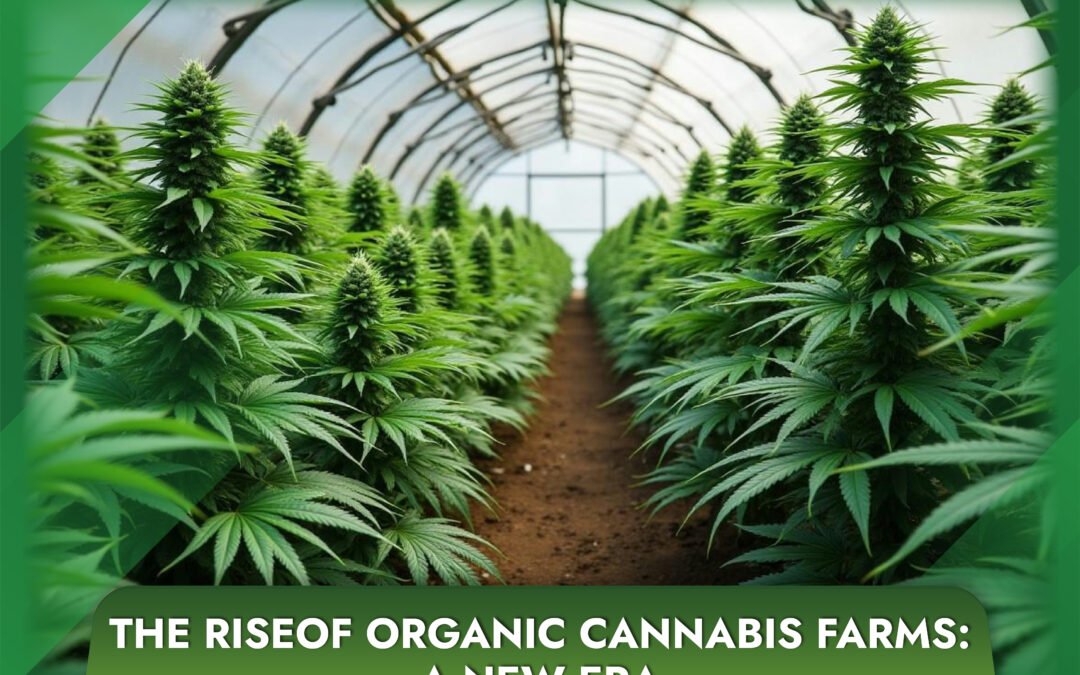The global cannabis industry transforms as consumers prioritize quality, sustainability, and ethical farming practices. This shift has paved the way for the rise of organic cannabis farms, which emphasize environmentally friendly cultivation methods. Organic cannabis farming is better for the environment and produces high-quality products that cater to health-conscious consumers.
What is Organic Cannabis Farming?
Organic cannabis farming focuses on cultivating cannabis plants without the use of synthetic pesticides, fertilizers, or genetically modified organisms (GMOs). Instead, it relies on natural soil amendments, compost, and environmentally sustainable practices to ensure the plants grow healthily and robustly.
Key principles of organic cannabis farming include:
- Enhancing soil health through natural composting.
- Avoiding harmful chemicals that can contaminate the environment.
- Promoting biodiversity to maintain a balanced ecosystem.
Why is Organic Cannabis Farming Gaining Popularity?
1. Growing Consumer Awareness
Consumers today are more aware of what goes into the products they consume. With concerns about the long-term effects of chemicals, there’s a growing demand for cannabis that is clean, safe, and free from harmful additives. Organic cannabis farms cater to these demands by delivering products that align with health-conscious values.
2. Sustainability
Organic farming methods help reduce the environmental footprint of cannabis cultivation. By avoiding synthetic chemicals and focusing on sustainable practices, these farms contribute to preserving natural resources and reducing pollution.
3. Superior Quality
Many enthusiasts claim that organically grown cannabis has a richer terpene profile, better flavor, and more potent effects compared to non-organic counterparts. This is attributed to the natural growth process, which allows the plants to develop their full potential.
Benefits of Organic Cannabis Farms
1. Healthier Cannabis Products
Organic cannabis is free from synthetic chemicals, making it a safer choice for medical and recreational users. This is especially important for individuals who consume cannabis for therapeutic purposes, as chemical residues can affect the product’s efficacy.
2. Environmental Benefits
Reduced Water Pollution: Organic farming prevents chemical runoff from water sources.
- Soil Preservation: Natural composting improves soil fertility, ensuring long-term agricultural viability.
- Biodiversity: Organic farms encourage diverse plant and animal life, creating a balanced ecosystem.
3. Enhanced Market Value
With increasing consumer demand for organic products, farms that adhere to organic practices can command premium prices. This economic incentive further drives the adoption of organic methods.
Challenges in Organic Cannabis Farming
While organic cannabis farming offers numerous benefits, it also comes with challenges:
- Higher Costs: Organic farming requires more labor and careful resource management, leading to increased costs.
- Certification Process: Gaining organic certification can be a lengthy and expensive process, but it is essential for building consumer trust.
- Pest Control: Managing pests without synthetic pesticides requires innovative and time-consuming solutions, such as introducing beneficial insects or companion planting.
The Future of Organic Cannabis Farms
The rise of organic cannabis farms signifies a broader trend toward sustainability in the cannabis industry. As governments worldwide legalize cannabis for medical and recreational use, regulations surrounding organic farming are becoming more defined. Certified organic cannabis products are now entering the mainstream market, appealing to a wider audience.
Countries like Canada, the United States, and parts of Europe are already leading in organic cannabis production. Farms are leveraging advanced technologies, such as LED lighting and automated irrigation, to improve efficiency while maintaining organic standards.
Conclusion
The emergence of organic cannabis farms marks a new era in the cannabis industry, where sustainability, quality, and consumer well-being take center stage. As demand for organic products continues to grow, these farms represent the future of cannabis cultivation. They not only provide superior products but also contribute positively to the environment, setting a high standard for the industry.
For consumers seeking clean, high-quality cannabis, choosing products from organic farms is a step toward better health and a greener planet. The rise of organic cannabis is more than a trend—it’s a movement toward a sustainable future.

